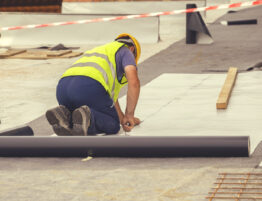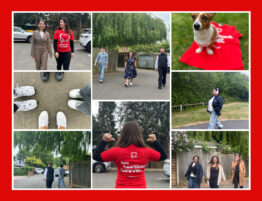
Over the past few weeks, we’ve been sharing some of the principles and actions we want Sheriff to follow in order to improve our ‘social value’.
In part 1, we talked about the things we could do to support the communities we’re part of and in part 2, we looked at how we might better support the people who work with us (both in and outside of the workplace).
There’s one more area of social value which is really important to us because it’s implications go so much further than the people and places that are part of our everyday lives – the environment.
So, in the final chapter of this series, our question is this:
What steps can Sheriff take to protect the natural environment?
Here are some things we’ve already been doing…
- Carrying out our own property development projects in ways that protect the environment and communities which we build in. This includes ensuring our properties are well insulated, fitted with energy-efficient appliances, offer cycle storage and, in some cases require no gas supply for their energy consumption.
- Supporting the main contractors we work alongside to implement their policies that reduce environmental impact – for example, helping them to install green, biodiverse and blue roofing and operating within the context of as near a zero waste policy as possible.
- Making efficient use of all our resources (on site and at Head Office) to reduce waste.
- Taking steps to reduce air pollution, noise and other environmental concerns within the communities where we work.
- Procuring goods and services from suppliers with strong commitments to ethics and sustainability.
- Restoring natural green spaces for our people to enjoy, for instance the creation of ‘nature deck’ for staff to use at the back of our offices in 2021. As well as clearing away the overgrowth and unwanted materials that were clogging up a stream that runs along this area, the deck was completed with wild flower beds and bird feed feeders to support local biodiversity.
- Making good use of all our materials by reclaiming cast offs, recycling and upcycling wherever possible. Our boardroom desk, decking and flower boxes at our Head Office were all made this way.
- Ordering local and minimising deliveries to reduce the carbon footprint of our procurement process.
- Running our fleet of vehicles in ways that help to reduce emissions, for example using modern vehicles such as hybrids and those with stop/start engine mechanisms to eliminate idling, ensuring the fleet is well-maintained, encouraging vehicle pooling and tracking usage.
- Promoting environmental policies and practices in our Toolbox Talks and via regular features in our website blog.
Going forwards
In her book, ‘Doughnut Economics’, Kate Raworth discusses a way forward for our society that would still enable people to prosper while not overshooting our planetary boundaries. By this, she means things like climate change, chemical pollution and biodiversity loss. It requires a lot of change and, when it comes to environmental factors, business of all sizes have a role to play.
One of the big changes Raworth describes is a need to go beyond ‘doing no harm’ into a position of ‘being generous’ by running businesses in ways that give back or regenerate the living systems we’re part of. One example might be an enterprise that takes organic waste from restaurants and supermarkets and turns it into fertiliser for organic farming. More relatable to our industry might be a company that designs buildings with rooftops that grow plants (green roofing) or those which collect and slowly release storm water (blue roofing).
We’re already involved in social value actions like these but know there is more we could do. That’s why we’re striving to take greater account of how our decisions and actions can bring benefits to society – for our communities, our people, the economy and for the environment.
If you have any thoughts or ideas about how we can better protect the environment, please let us know. Comment over on our Facebook or LinkedIn pages.
08.02.2022
Feature image: nmedia/Shutterstock.com








